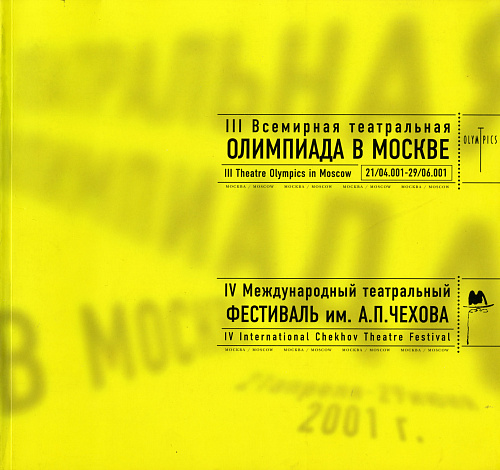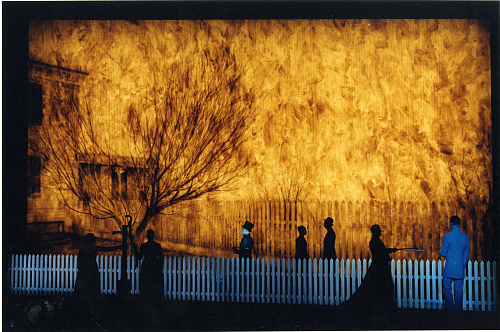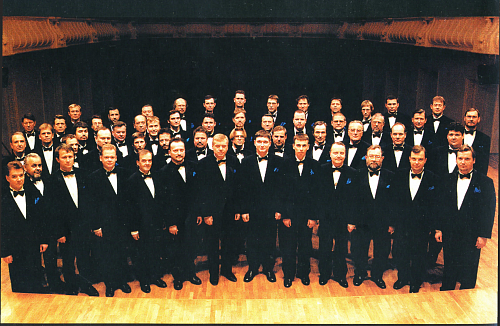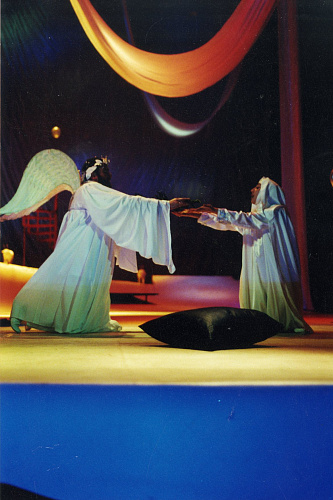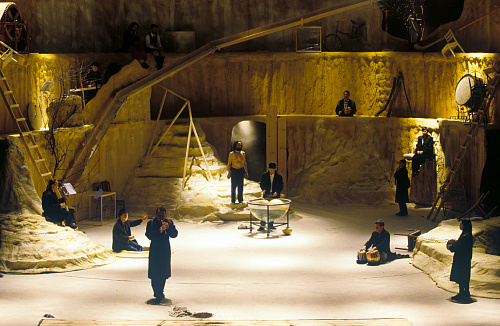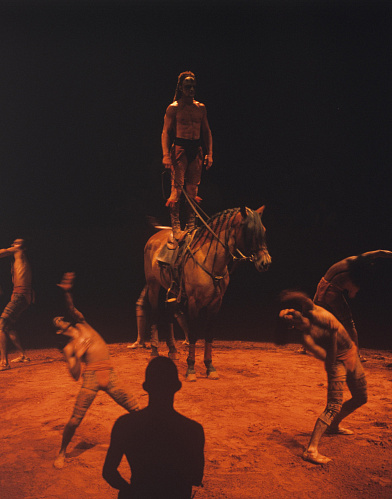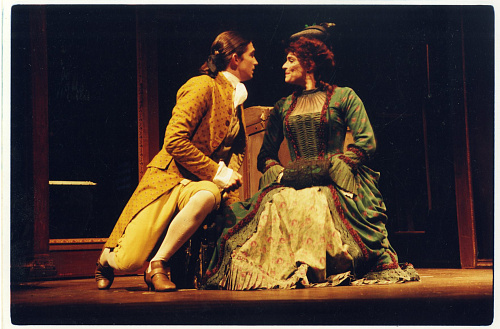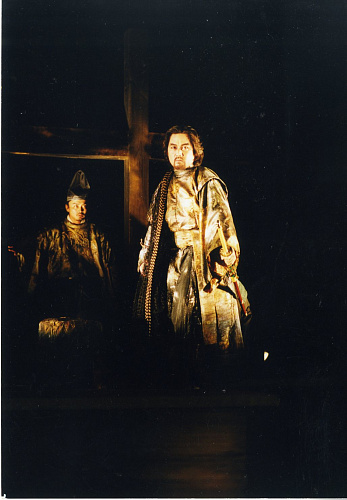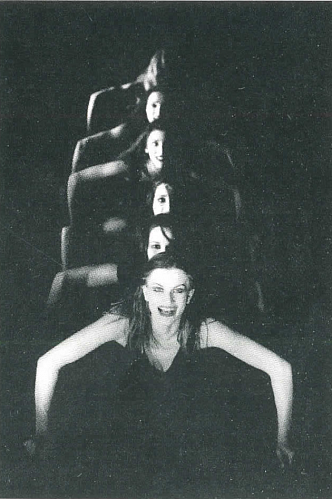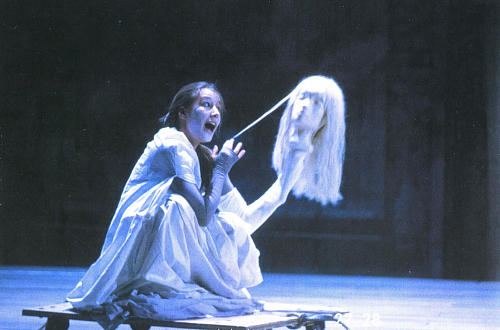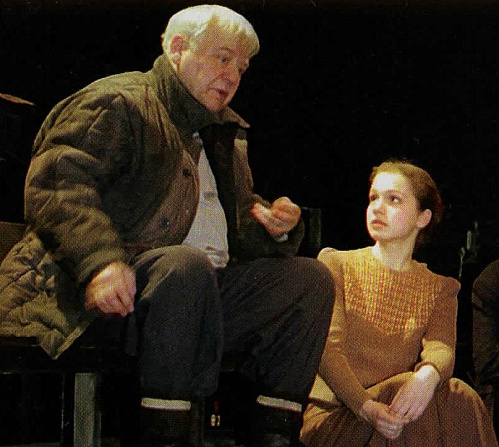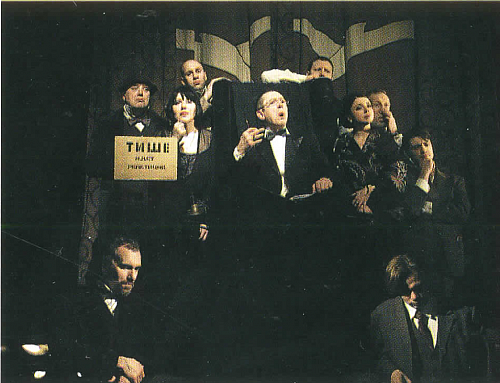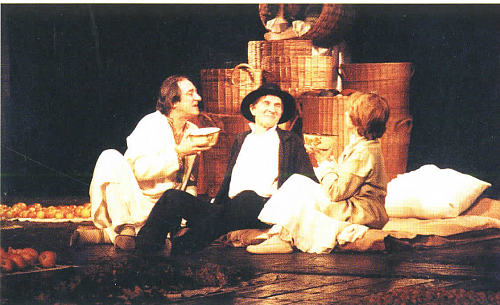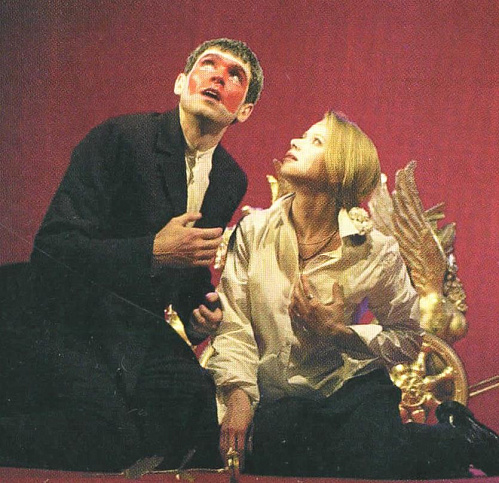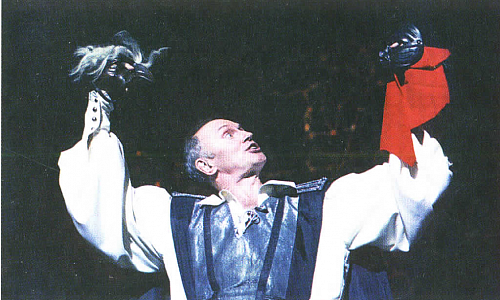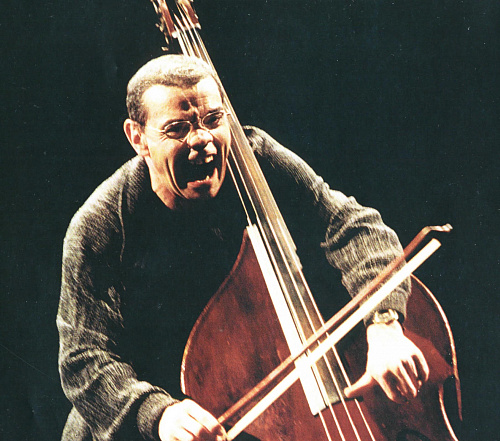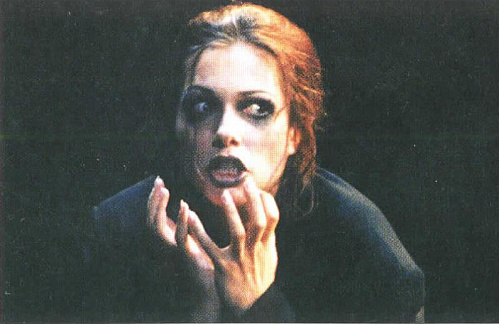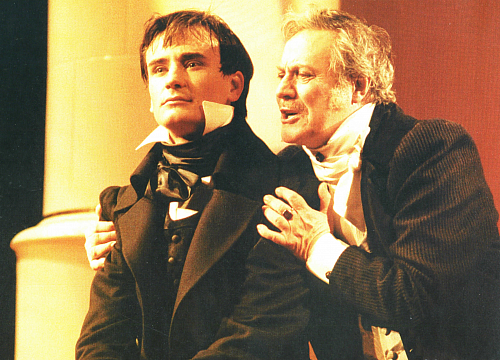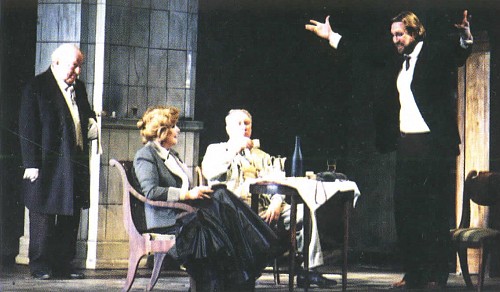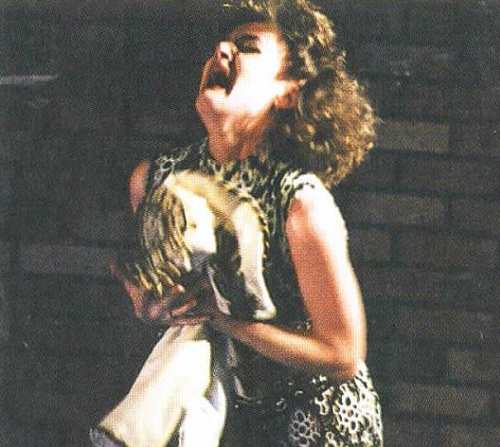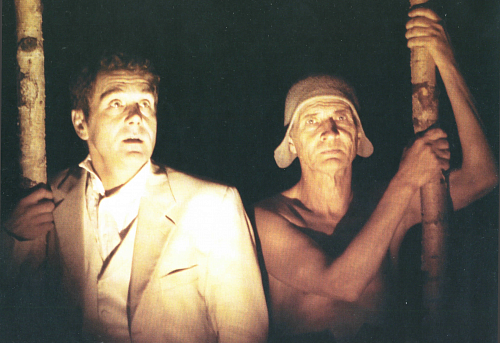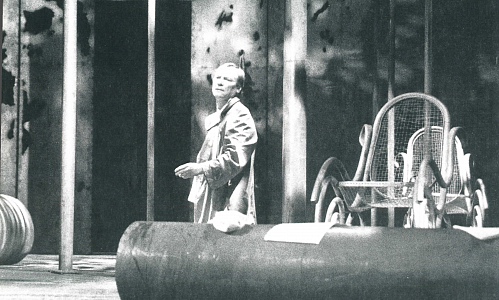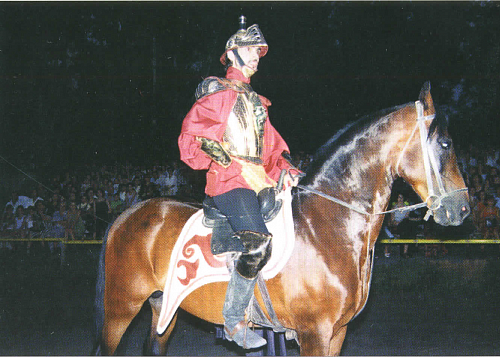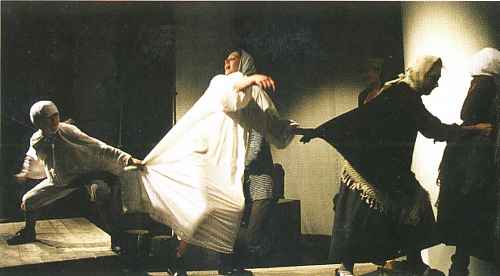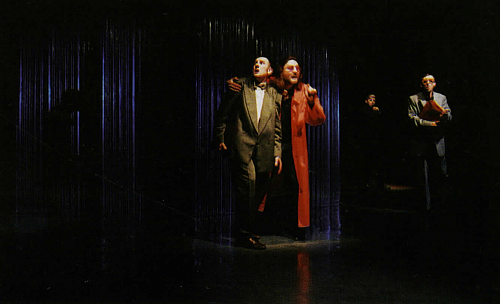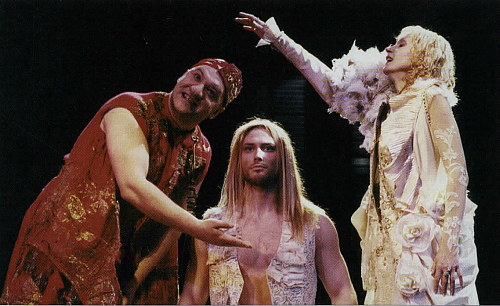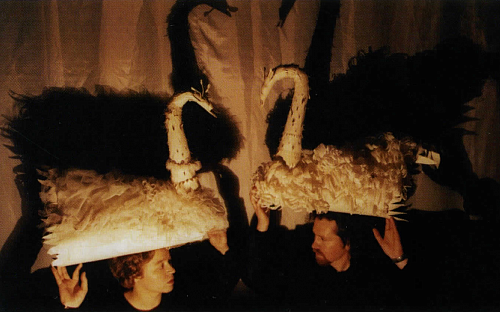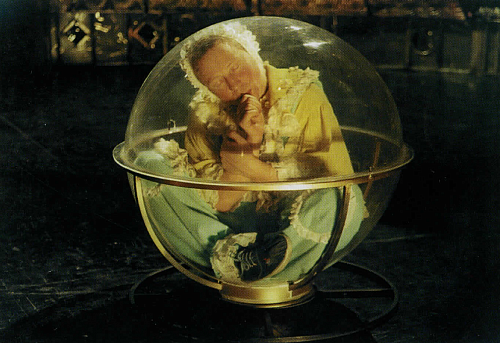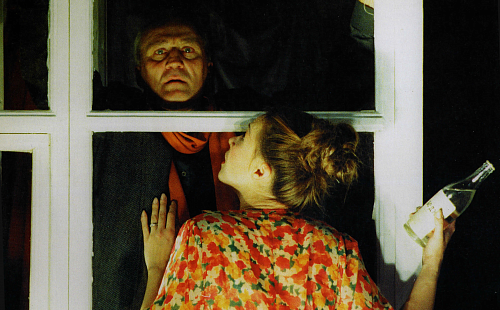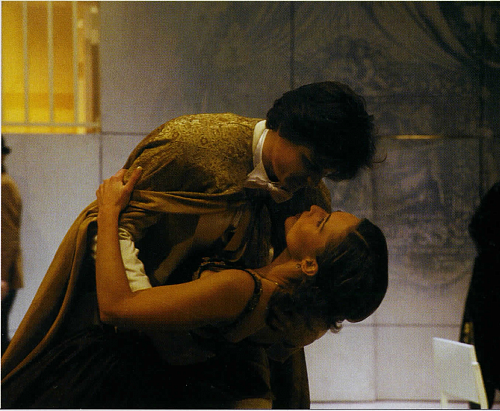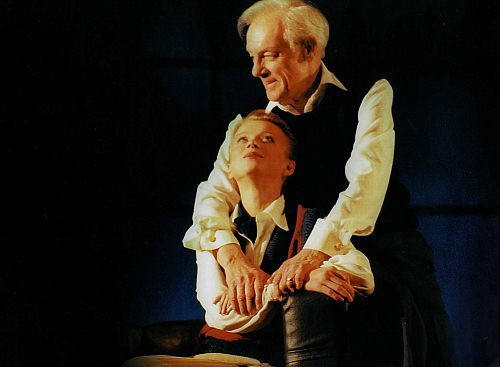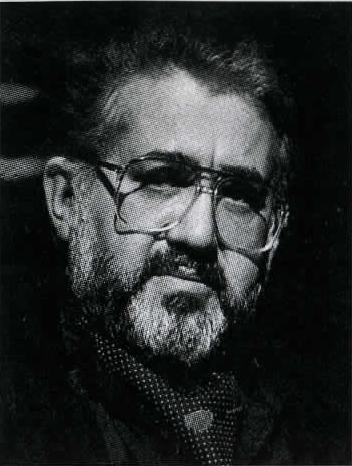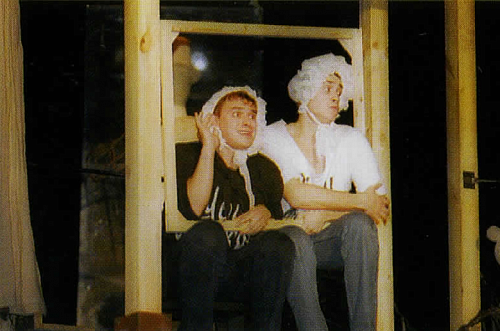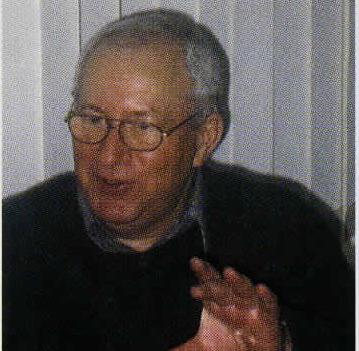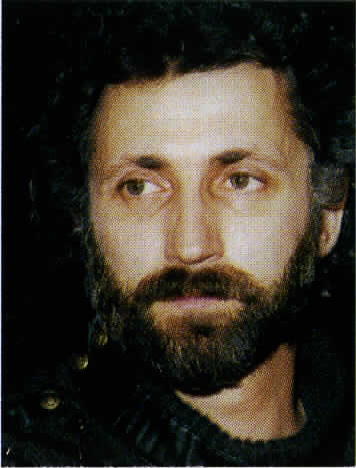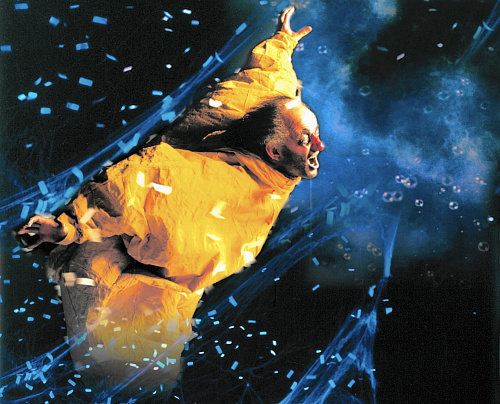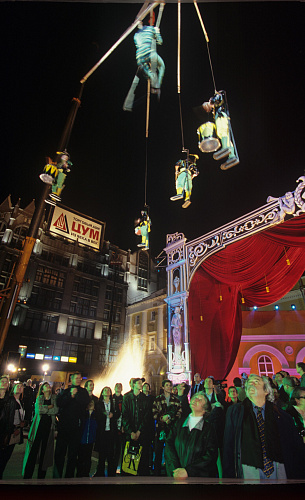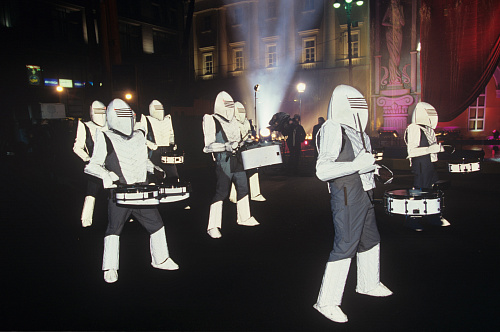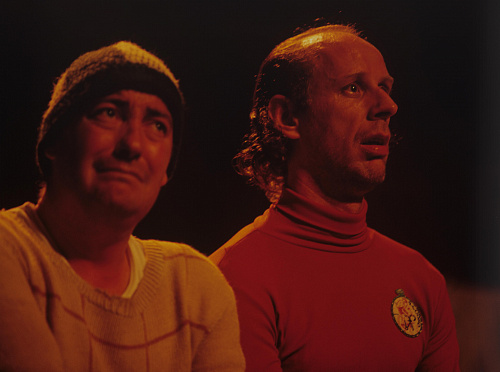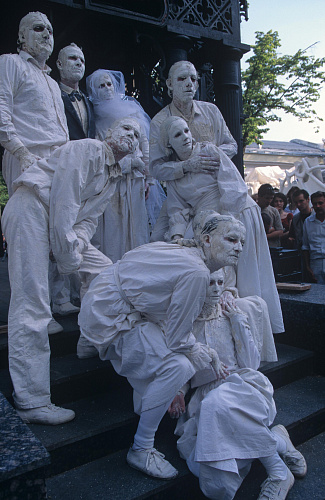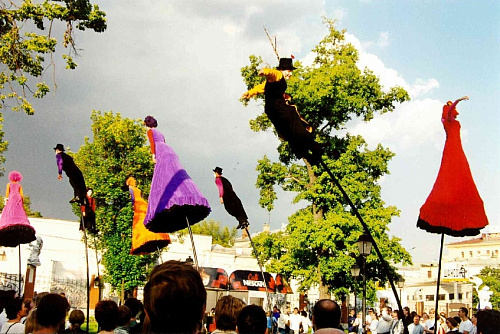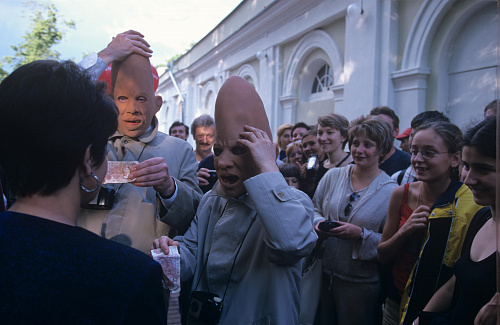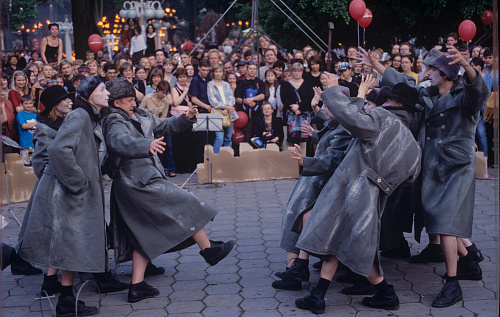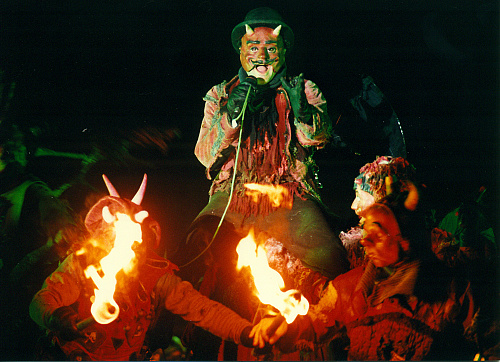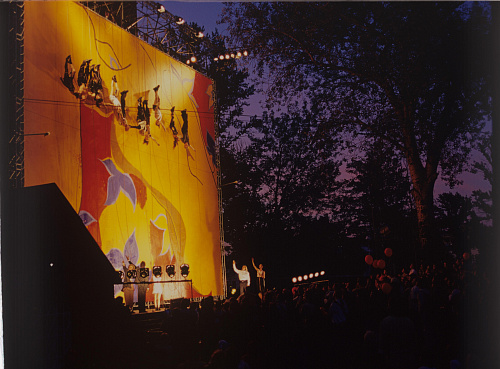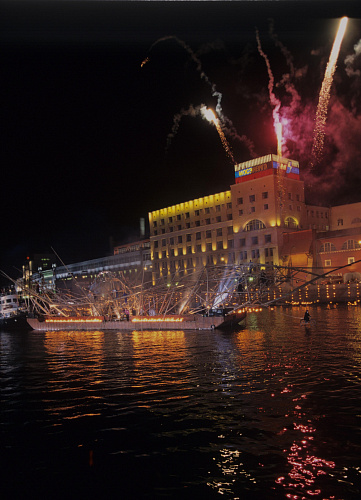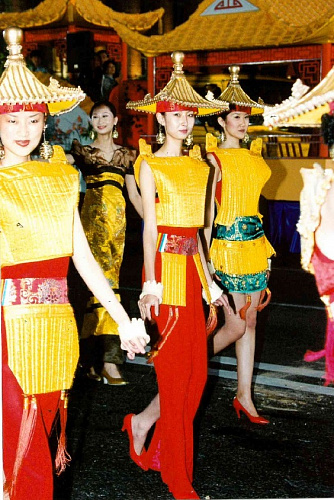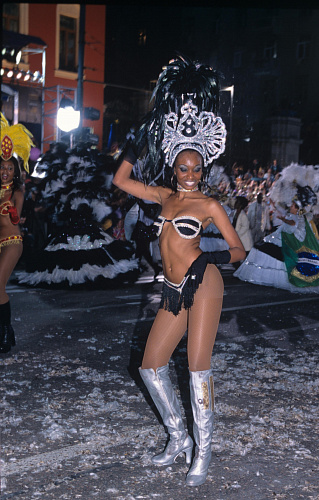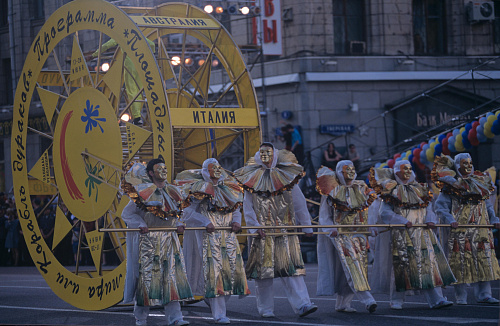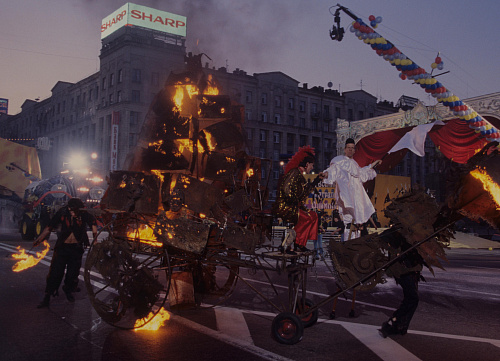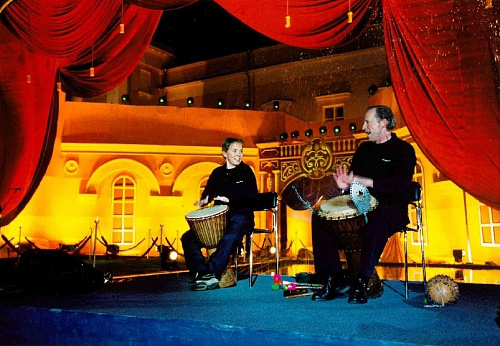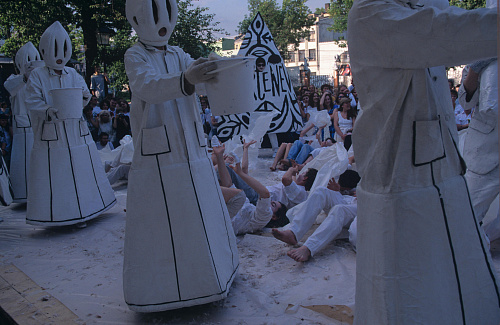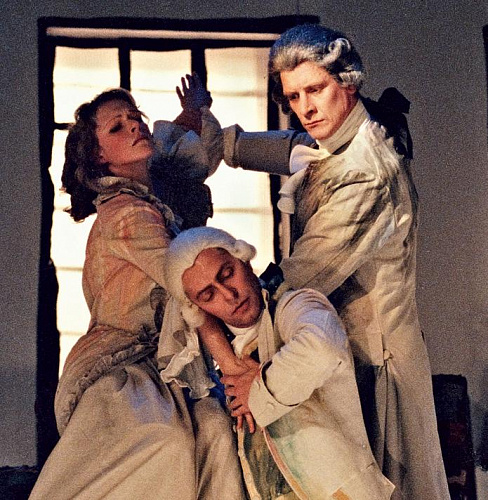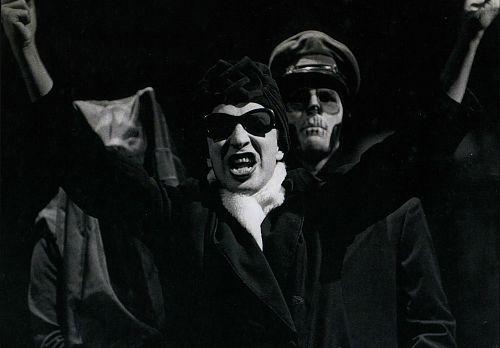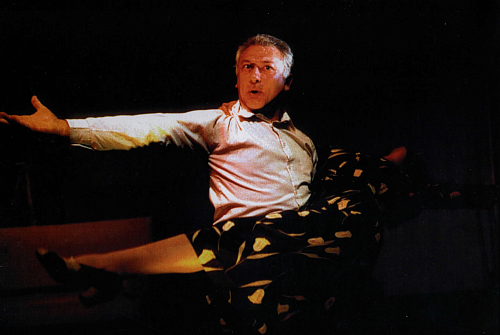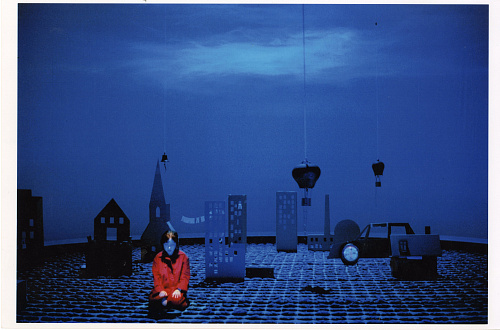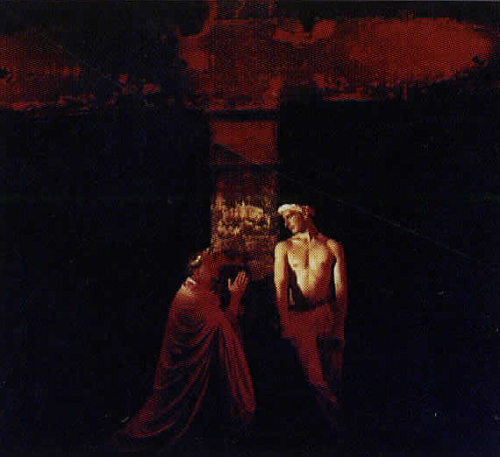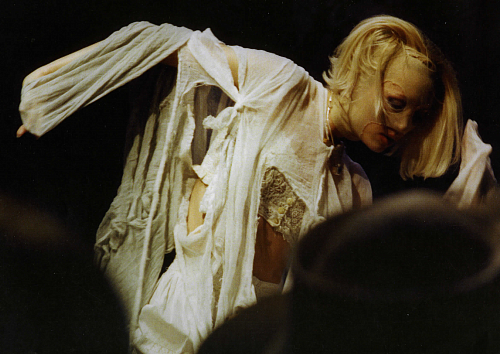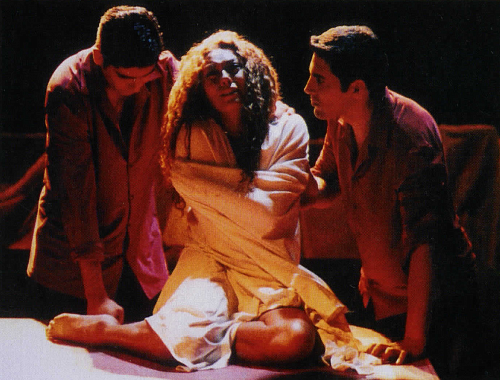The Fourth Chekhov International Theatre Festival took place in Moscow at the same time as the Third Theatre Olympics.
This action was absolutely unprecedented in terms of both importance and scale. For over two months Moscow became the center of the grandiose theatre feast that connected the Russian capital with the rest of the world. It was also instrumental in expanding Moscow’s cultural relationships with the rest of the world.
The motto of the Olympics was “Theatre for people”. It provided public in Moscow with the unique opportunity to get the idea of almost all the important developments in the turn-of-the-century world theatre.
The program of the Olympics consisted of four parts: the Russian and foreign theatre (45 productions), the experimental theatre (12 productions) and the carnival of street theatre. The World Series represented the crowning achievements of theatre around the world. For the first time public in Moscow could see the performances of the internationally acclaimed Zingaro horse theatre, managed by Bartabas. The experimental program featured the productions of young but already acclaimed directors from Russia, Lithuania, Italy, Bulgaria, Colombia, Georgia, Switzerland and some other countries.
Special programs had been prepared the Directing and Playwriting Center, headed by Alexei Kazantsev and Mikhail Roshchin, the Vsevolod Meyerhold Center, the School of Dramatic Art. These programs featured not only demonstrations of theatre productions, but also readings of plays, master-classes and seminars with the leading practitioners of theatre from all over the world.
The Russian program consisted of the best productions of the metropolitan and provincial theatres.
The Street Theatres program, initiated and arranged by Slava Polunin was participated by about 40 street theatres from 15 countries and also featured the performances of the world-famous clowns who create theatrical shows. The number of participants and guests of the Theatre Olympics in Moscow topped one million.
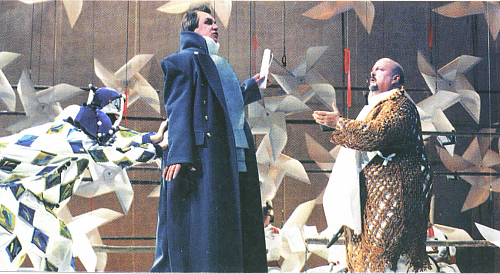 Betrothal at the Monastery (The Duenna)
Betrothal at the Monastery (The Duenna)
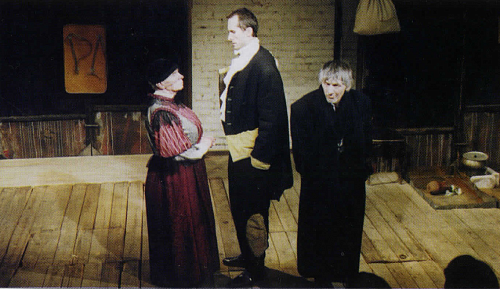 An Actress is Needed to Play a Tragic Part
An Actress is Needed to Play a Tragic Part
 The Hopeless Games
The Hopeless Games
 Dancing in the Rain
Dancing in the Rain
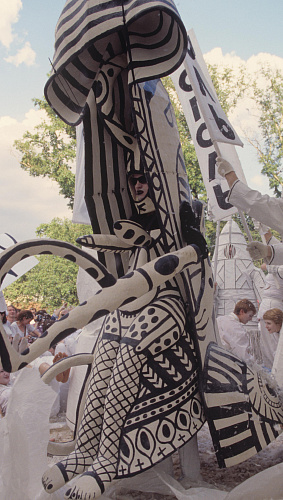 Botanical Ballet, The Sun is No Moon, Mineral Waters
Botanical Ballet, The Sun is No Moon, Mineral Waters
